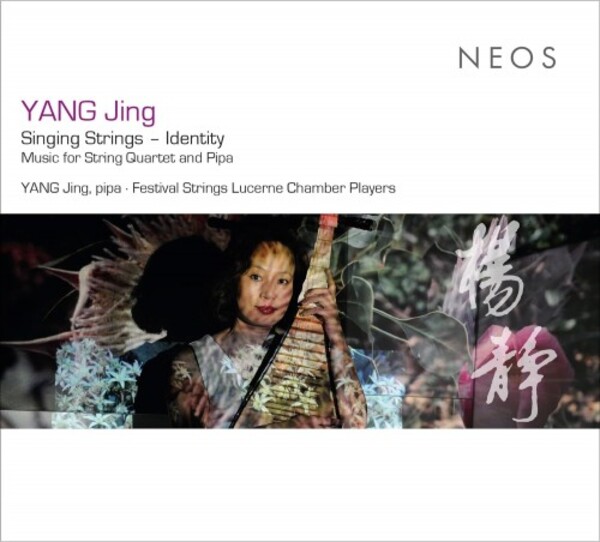
Yang Jing - Singing Strings: Identity
£13.25
In stock - available for despatch within 1 working day
Despatch Information
This despatch estimate is based on information from both our own stock and the UK supplier's stock.
If ordering multiple items, we will aim to send everything together so the longest despatch estimate will apply to the complete order.
If you would rather receive certain items more quickly, please place them on a separate order.
If any unexpected delays occur, we will keep you informed of progress via email and not allow other items on the order to be held up.
If you would prefer to receive everything together regardless of any delay, please let us know via email.
Pre-orders will be despatched as close as possible to the release date.
Label: Neos Music
Cat No: NEOS12326
Format: CD
Number of Discs: 1
Genre: Chamber
Release Date: 9th February 2024
Contents
Works
Black HorseEin neuer Anfang
Identity
Jade in Strings
Morning Song and Evening Poem
Silk Bamboo Strings
Singing Strings - Heart Swing
Sunset Over Northern Heights
The Silk Pipa Dance
Artists
Yang Jing (pipa)Festival Strings Lucerne Chamber Players
Works
Black HorseEin neuer Anfang
Identity
Jade in Strings
Morning Song and Evening Poem
Silk Bamboo Strings
Singing Strings - Heart Swing
Sunset Over Northern Heights
The Silk Pipa Dance
Artists
Yang Jing (pipa)Festival Strings Lucerne Chamber Players
About
Although Mao Zedong had described tradition as a "living current" a few years earlier, he allowed the Cultural Revolution organised by the Gang of Four to take place. In addition to spiritual impoverishment, this also brought a material impoverishment due to the brutal liquidation of a large part of the so-called elites along with all supposed and actual dissidents; the chaos that accompanied the social transformation led to famines. Almost all artists and musicians were deprived of their particular skills as part of the "rebuilding," and were to be "reeducated" through agricultural work organised in camps so that the historical heritage they had received thus far, as well as any foreign influence, would be eradicated.
Perhaps this explains Yang Jing's interest in Chinese tradition, which is revealed through her instrument, the pipa, and her music. Like scarcely any other Chinese composer, she succeeds in creating an amalgam of Western and Eastern musical languages, which is particularly evident here in the juxtaposition of the pipa with the string quartet. This combination of instruments is almost symbolic of the intersection of different worlds, which is all too often avoided in the standardised cultural industry.
Error on this page? Let us know here
Need more information on this product? Click here